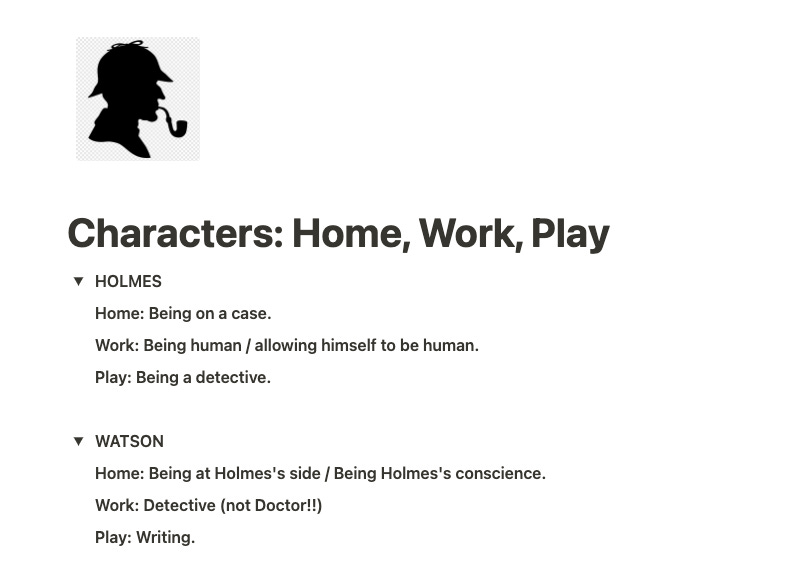Exploring your characters at home, at work and at play
A simple trick for working out what makes your characters tick...and pulling the rug out from beneath them!

I’m head down in deadlines this week, so I thought I’d share a quick tip that George Mann and I regularly use when writing together.
It’s for the start of a project when you’re looking at your characters, trying to figure out who these people are. Getting to know them better can be as simple as asking three questions:
- What is their home?
- What is their work?
- What is their play?
Now, we’re not talking about their literal place of residence or even their occupation. Instead, we’re looking for:
- where are they most comfortable?
- what do they have to work hardest to achieve?
- what gives them joy?
As an example, here’s what George and I came up with for everyone’s favourite detecting duo when we were brainstorming our Audible Original, Sherlock Holmes: The Voice of Treason:

So, running through those points…
Our Holmes, we decided, is most comfortable while on a case. That feels like home to him. His work, the thing he has to strive to achieve, is to be human (or at least to allow himself to experience the emotions of us lesser mortals.) It’s all too easy for Holmes to think of himself as a machine, outside of humanity, looking in. And his play, the thing that gives him joy? Why, it’s a case, of course.
Similarly, John Watson is most comfortable at Holmes’ side. That’s his true home, no matter where he’s residing at the time (or which Mrs Watson he’s living with!)
The thing he has to work at is being a detective. It doesn’t come naturally, unlike his actual profession, and he needs to practice. And the good doctor’s passion is writing, being the author Holmes so often derides!

By knowing these three states, you can work out how best to push your characters’ buttons, creating all-important conflict.
So, if Watson is happiest at Holmes’ side, you separate him from his best friend or, even better, drive a wedge between them as we did in this particular adventure. Holmes, in this telling, struggles with empathy — with ‘being human’ — so you place him in a situation where the case he’s trying to solve, the thing that makes him feel complete, depends on the thing he finds most difficult: his emotions!
Why not give it a go with your characters today? What is their home, their work, and their play?

